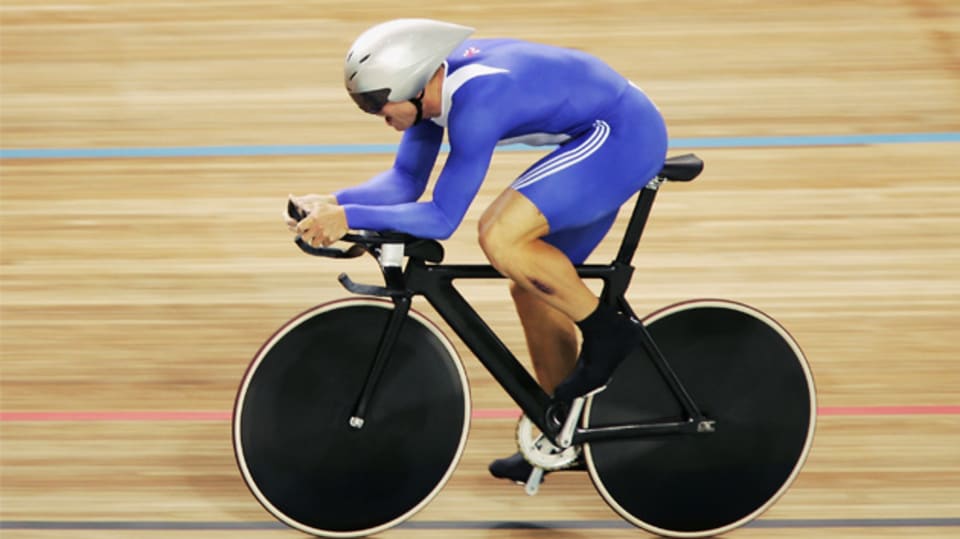Hoy leaves the best until last
Chris Hoy, who would go on to become one of the greatest track cyclists of all time, made his breakthrough in Athens. The Scot had taken up cycling as a kid after watching the film ET, and it was therefore BMX that was his first love. He quickly got himself noticed as one of the best young talents in Britain and was ranked in the top 10 in the world in his age group. He didn't even know there was such a thing as track cycling until, at the age of 10, he saw the Scottish sprinter Eddie Alexander on television, competing at the 1986 Commonwealth Games in Edinburgh.

It wasn't until he was 16, though, that Hoy he began to focus on track cycling in earnest. Within a few years, he had reached international standard and, in 1999, he won a silver medal riding as the third man for Great Britain in the team sprint at the World Championships. The following year, in Sydney, he made his Olympic debut and was rewarded with another team sprint silver.
But it was in Athens that he rose to the fore in his own right. The 1km time trial was an explosive event that required pure out-and-out speed. Hoy, with his big, muscular frame, was well suited to it and had already won the world title in both 2002 and 2004. However, in Athens the field was full of quality track cyclists including no less than three former world champions: Arnaud Tournant of France, who was the world record holder Germany’s Stefan Nimke and the evergreen Australian Shane Kelly.
Hoy's preparations had been hampered by an accident on his bike in the run-up to the Games, and he still bore the scars to prove it. Yet he had avoided serious injury and he used the crash as the inspiration to push himself as hard as possible.
Hoy scheduled to go last on a fast track that saw his three main rivals all take turns to lower the Olympic record, with Tournant reducing it to 1 minute 0.896 seconds. Instead of intimidating Hoy, their feats simply provided him with further motivation to excel.
His first split time was the fastest so far, and the crowd in the velodrome cheered loudly, recognising he was on the verge of something special. Each split saw him go further ahead of Tournant's time and, as he crossed the line in 1 minute 0.711 seconds, becoming the fourth man to break the Olympic record that day - the gold medal was his.
Hoy went on to take a further three Olympic golds in 2008, and then two more in 2012. His achievements were acknowledged in 2009 when he was awarded a knighthood by the British Queen, meaning he is now officially known as Sir Chris Hoy, and he has had, among other things, a velodrome and a train named after him.
